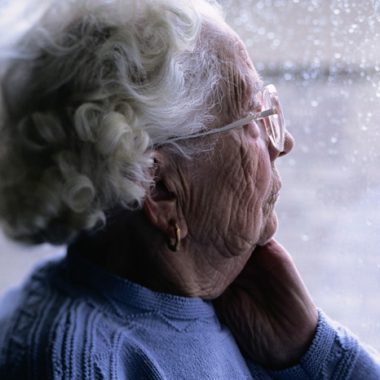GPs should review all nursing home residents for dementia, says NHS England lead

GPs should screen all newly admitted nursing home residents for dementia as well as ‘double-check’ they have not missed any existing ones off the QOF register, NHS England’s dementia tsar has said today.
Professor Alistair Burns, NHS England’s clinical lead for dementia, encouraged GPs who run sessions in care homes to spend ‘an extra hour or two’ in meetings with managers to ensure no existing residents have been missed and also set up systems for having a dementia review with each new resident admitted.
The latest bid from NHS England to boost diagnosis rates and make progress on the Government’s target to improve dementia diagnosis rates comes in a blog from the dementia lead, accompanied by a frequently asked questions guide to GPs prepared with elderly care specialists.
Professor Burns said: ‘Care homes and GPs covering the homes could work together to set up a process whereby all new residents being admitted to care homes have a review to establish whether they have a diagnosis of dementia, carry out an anticipatory planning review of medication, arrange baseline blood tests etcetera. If a diagnosis is made this is recorded in the care home records and GP QOF register.’
He added that GPs and care homes ‘could work together’ on identifying patients, setting out their follow-up care plan and arranging of blood testing.
The blog post said: ‘Some care homes will have dedicated sessions from a specific GP. It might be possible to encourage these GPs to double check that all residents the GP knows has dementia are on the QOF register.
‘An extra hour or two discussing all residents briefly with the care home manager may identify people who obviously have dementia but haven’t been formally diagnosed. Most of these will probably not need referral to specialist services to confirm the diagnosis but, of course, those with unusual symptoms do need secondary care assessment.’
Related articles
In full: NHS England’s FAQ on diagnosing dementia in care homes
GPs to recommend ‘books on prescription’ to patients with dementia
Reading Well Books on Prescription for Dementia – the full list
Meanwhile, in the accompanying FAQ, NHS England made clear that there should be no exception reporting based purely on the patients residing in care homes.
The document said: ‘Patients cannot be added to the register and then excepted because they live in a care home. Excepting from initial diagnostic tests is more justifiable than excepting from annual review so if GPs do except a lot of patients from the annual review [NHS England] area teams would be justified in seeking an explanation from the GPs for why this is the case.’
But GPC deputy chair Dr Richard Vautrey said the suggestions were ‘unhelpful’ to GPs who are already struggling with a growing workload demands from care homes.
He said: ‘When GPs first meet any patient who has newly registered they take an appropriate history which will include a review of their previous records as and when they become available, so they will be looking for new as well as current medical problems as part of routine practice. However they do this in a holistic way, not in a narrow disease specific way and it is unhelpful to suggest otherwise.
‘GPs already spend large amounts of time in care homes doing regular visits for their patients and there is little evidence to suggest that care home staff are slow at calling GPs to see their residents. It’s usually quite the reverse as care homes become increasingly risk averse. This is further adding to the growing workload burden carried by GPs and practices.’
Last year NHS England sparked controversy by rolling out a time-limited £55 per patient incentive to GPs for each new dementia diagnosis, coinciding with reports that the Government was falling behind on targets for diagnoses to cover two-thirds of the expected prevalence.
Pulse October survey
Take our July 2025 survey to potentially win £1.000 worth of tokens

Visit Pulse Reference for details on 140 symptoms, including easily searchable symptoms and categories, offering you a free platform to check symptoms and receive potential diagnoses during consultations.










